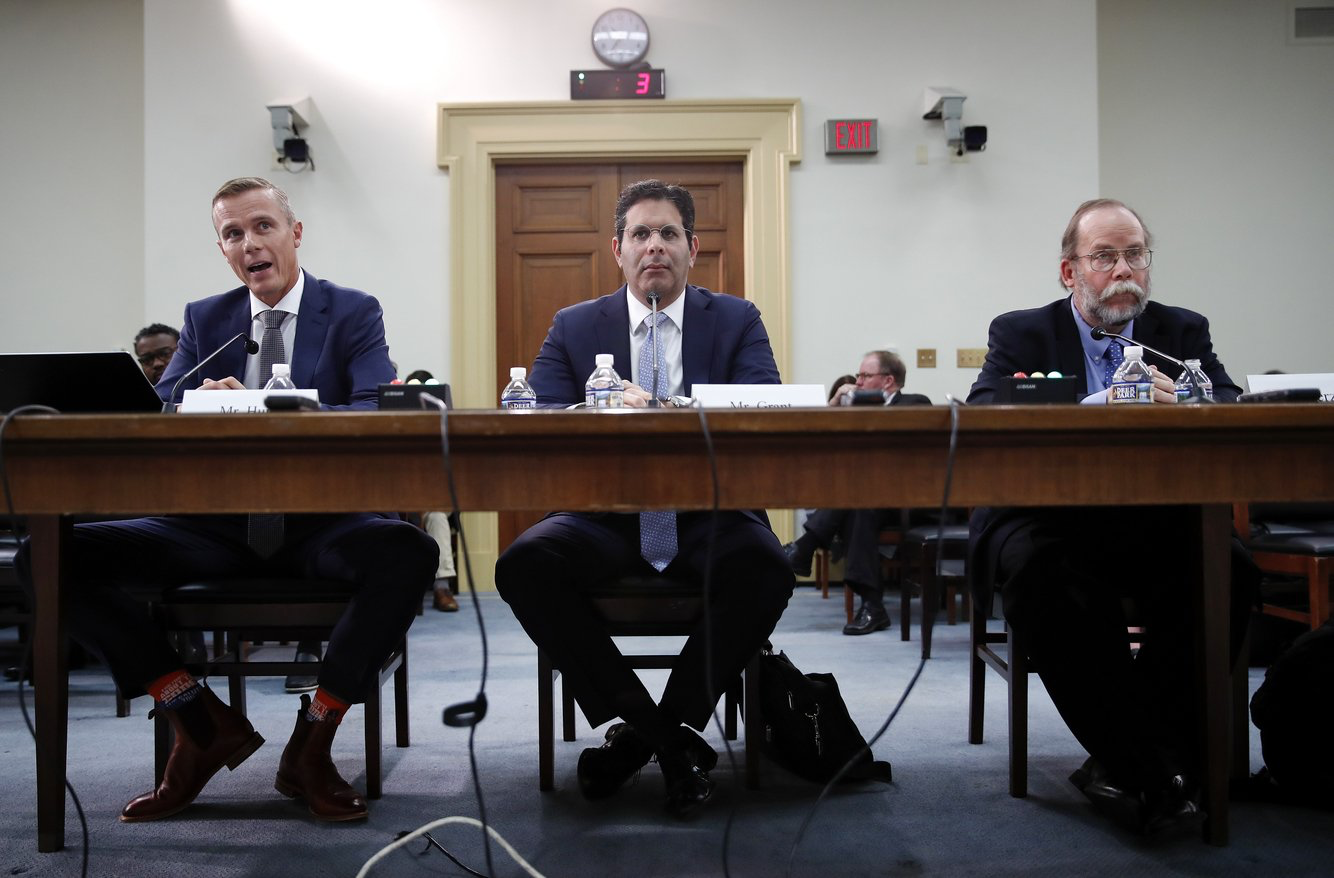A decade ago to the day, I published a tweet launching what would surely become yet another pet project that scratched an itch, was kinda useful to a few people but other than that, would shortly fade away into the same obscurity as all the other ones I'd launched over the previous couple of decades:
It's alive! "Have I been pwned?" by @troyhunt is now up and running. Search for your account across multiple breaches http://t.co/U0QyHZxP6k
— Have I Been Pwned (@haveibeenpwned) December 4, 2013
And then, as they say, things kinda escalated quickly. The very next day I published a blog post about how I made it so fast to search through 154M records and thus began a now 185-post epic where I began detailing the minutiae of how I built this thing, the decisions I made about how to run it and commentary on all sorts of different breaches. And now, a 10th birthday blog post about what really sticks out a decade later. And that's precisely what this 185th blog post tagging HIBP is - the noteworthy things of the years past, including a few things I've never discussed publicly before.
Pwned?
You know why it's called "Have I Been Pwned"? Try coming up with almost any conceivable normal sounding English name and getting a .com domain for it. Good luck! That was certainly part of it, but another part of the name choice was simply that I honestly didn't expect this thing to go anywhere. It's like I said in the intro of this post where I fully expected this to be another failed project, so why does the name matter?
But it's weird how "pwned" has stuck and increasingly, become synonymous with HIBP. For many people, the first time they ever hear the word is in the context of "Have I Been..." with an ensuing discussion often explaining the origins of the term as it relates to gaming culture. And if you do go and look for a definition of the term online, you'll come across resources such as How “PWNED” went from hacker slang to the internet’s favourite taunt:
Then in 2013, when various web services and sites saw an uptick in personal data breaches, security expert Troy Hunt created the website “Have I Been Pwned?” Anyone can type in an email address into the site to check if their personal data has been compromised in a security breach.
And somehow, this little project is now referenced in the definition of the name it emerged from. Weird.
But, because it's such an odd name that has so frequently been mispronounced or mistyped, I've ended up with a whole raft of bizarre domain names including haveibeenpaened.com, haveibeenpwnded.com, haveibeenporned.com and my personal favourite, haveibeenprawned.com (because a journo literally pronounced it that way in a major news segment 🤦♂️). Not to mention all the other weird variations including haveibeenburned.com, haveigotpwned.com, haveibeenrekt.com and after someone made the suggestion following the revelation that PornHub follows me, haveibeenfucked.com 🤷♂️
Press
It's difficult to even know where to start here. How does the little site with the weird name end up in the press? Inevitably, "because data breaches", and it's nuts just how much exposure this project has had because of them. These are often mainstream news events and what reporters often want to impart to people is along the lines of "Here's what you should do if you've been impacted", which often boils down to checking HIBP.
Press is great for raising awareness of the project, but it has also quite literally DDoS'd the service with the Martin Lewis Money Show in the UK knocking it offline in 2016. Cool! No, for real, I learned some really valuable lessons from that experience which, of course, I shared in a blog post. And then ensured could never happen again.
Back in 2018, Gizmodo reckoned HIBP was one of the top 100 websites that shaped the internet as we knew it, alongside the likes of Wikipedia, Google, Amazon and Goatse (don't Google it). Only the year after it launched, TIME magazine reckon'd it was one of the 50 best websites of the year. And every time I do a Google search for a major news outlet, I find this little website. The Wall Street Journal. The Standard (nice headline!) USA Today. Toronto Star. De Telegraaf. VG. Le Monde. Corriere della Sera. It's wild - I just kept Googling for the largest newspapers in various parts of the world and kept getting hits!
The point is that it's had impact, and nobody is more surprised about that than me.
Congress
How on earth did I end up here?!

6 years and a few days ago now, I found myself in a place I'd only ever seen before in the movies: Congress. American Congress. Saying "pwned"!
For reasons I still struggle to completely grasp, the folks there thought it would be a good idea if I flew to the other side of the world and talked about the impact of data breaches on identity verification. "You know they're just trying to get you to DC so they can arrest you for all that stolen data you have, right?! 🤣", the internet quipped. But instead, I had one of the most memorable moments of my career as I read my testimony (these are public hearings so it's all recorded and available to watch), responded to questions from congressmen and congresswomen and rounded out the trip staring down at where they inaugurate presidents:

Today, that photo adorns the wall outside my office and dozens of times a day I look at it and ask the same question - how did it all lead to this?!
Svalbard
The potential sale of HIBP was a very painful, very expensive chapter of life, announced in a blog post from June 2019. For the most part, I was as transparent and honest as I could be about the reasons behind the decision, including the stress:
To be completely honest, it's been an enormously stressful year dealing with it all.
More than one year later, I finally wrote about the source of so much of that stress: divorce. Relationship circumstances had put a huge amount of pressure on me and I needed a relief valve which at the time, I thought would be the sale of the project I loved so much but was becoming increasingly demanding. Ultimately, Project Svalbard (the code name for the sale of HIBP), had the opposite effect as years of bitter legal battles with my ex ensued, in part due to the perceived value that would have been realised had it been sold and some big tech company owned my arse for years to come. The project I built out of a passion to do community good was now being used as a tool to extract as much money out of me as possible. There's a wild story to be told there one day but whilst that saga is now well and truly behind me, the scars are still raw.
There were many times throughout Project Svalbard where I felt like I was living out an episode of Silicon Valley, especially as I hopped between interviews at the who's-who of tech firms in San Francisco to meet potential acquirers. But there was one moment in particular that I knew at the time would form an indelible memory, so I took a photo of it:

I'm sitting in a rental car in Yosemite whilst driving from the aforementioned meetings in SF and onto Vegas for the annual big cyber-events. I had a scheduled call with a big tech firm who was a potential acquirer and should that deal go through, the guy I was speaking to would be my new boss. I'd done that dozens of times by now and I don't know if it was because I was especially tired or emotional or if there was something in the way he phrased the question, but this triggered something deep inside me:
So Troy, what would your perfect day in the office look like?
I didn't say it this directly, but I kid you not this is exactly what popped into my mind:
I get on my jet ski and I do whatever the fuck I want
My potential new overlord had somehow managed to find exactly the raw nerve to touch that made me realise how valuable independence had become to me. 6 months later, Project Svalbard was dead after a deal I'd struck fell through. I still can't talk about the precise circumstances due to being NDA'd up to wazoo, but the term we chose to use was "a change of business circumstances on behalf of the purchaser". With the benefit of hindsight, I've never been so happy to have lost so much 😊
The FBI
10 years ago, I certainly didn't see this on the cards:
This is so cool, thanks @FBI 😊 pic.twitter.com/aqMi3as91O
— Troy Hunt (@troyhunt) June 28, 2023
Nor did I expect them to be actively feeding data into HIBP. Or the UK's NCA to be feeding data in. Or various other law enforcement agencies the world over. And I never envisioned a time where dozens of national governments would be happy to talk about using the service.
A couple of months ago, the ABC wrote a long piece on how this whole thing is, to use their term, a strange sign of the times.
He’s just “a dude on the web”, but Troy Hunt has ended up playing an oddly central role in global cybersecurity.

It's strange until you look at through the lens of aligned objectives: the whole idea of HIBP was "to do good things after bad things happen" which is well aligned with the mandates of law enforcement agencies. You could call it... common ground:
This is something I suspect a lot of people don't understand - that law enforcement agencies often work in conjunction with private enterprise to further their goals of protecting people just like you and me. It's something I certainly didn't understand 10 years ago, and I still remember the initial surprise when agencies started reaching out. Many years on, these have become really productive relationships with a bunch of top notch people, a number of whom I now count as friends and make an effort to spend time with on my travels.
Passwords
This was never on the cards originally. In fact, I'd always been adamant that there should never be passwords in HIBP although in my defence, the sentiment was that they should never appear next to the username to which they originally accompanied. But looking at passwords through the lens of how breach data can be used to do good things, a list of known compromised passwords disassociated from any form of PII made a lot of sense. So, in 2017, Pwned Passwords was born. You know what I was saying earlier about things escalating quickly? Yeah:
Setting all new records for Pwned Passwords this week: biggest day ever yesterday at 282M requests and biggest rolling 30 days ever, now passing the 6 *billion* requests mark! pic.twitter.com/dQiuQim3da
— Troy Hunt (@troyhunt) September 12, 2023
As if to make the point, I just checked the latest stats and last week we did 301.6M requests in a single day. 100% of those requests - and that's not a rounded number either, it's 100.0000000000% - were served from Cloudflare's cache 🤯
There's so much I love about this service. I love that it's free, there's no auth, it's entirely open source (both code and data), the FBI feeds data into it and perhaps most importantly, it has real impact on security. It's such a simple thing, but every time you see a headline such as "Big online website hit with credential stuffing attack", a significant portion of the accounts being taken over have passwords that could easily have been blocked.
The Paradox of Handling Data Breaches
On multiple occasions now, I've had conversations that can best be paraphrased as follows:
Random Internet Person: I'm going to report you to the FBI for having all that stolen data
Me: Maybe you should start by Googling "troy hunt fbi" first...
But I understand where they're coming from and the paradox I refer to is the perceived conflict between handling what is usually the output of a crime whilst simultaneously trying to perform a community good. It's the same discussion I've often had with people citing privacy laws in their corner of the world (often the EU and GDPR) as the reason why HIBP shouldn't exist: "but you're processing data without informed consent!", they'll claim. The issue of there being other legal bases for processing aside, nobody consents to being in a data breach! The natural progression of that conversation is that being in a data breach is a parallel discussion to HIBP then indexing it and making it searchable, which is something I've devoted many words to addressing in the past.
But for all the bluster the occasional random internet person can have (and honestly, I could count the number of annual instances of this on one hand), nothing has come of any complaints. And when I say "complaints", it's often nothing more than a polite conversation which may simply conclude with an acknowledgment of opposing views and that's it. There has been one exception in the entire decade of running this service where a complaint did come via a government privacy regulator, I responded to all the questions that were asked and that was the end of it.
People
When you have a pet project like HIBP was in the beginning, it's usually just you putting in the hours. That's fine, it's a hobby and you're scratching an itch, so what does it matter that there's nobody else involved? Like many similar passion projects, HIBP consumed a lot of hours from early on, everything from obviously building the service then sourcing data breaches, verifying and disclosing them, writing up descriptions and even editing every single one of those 700+ logos by hand to be just the right dimensions and file size. But in the beginning, if I'd just stopped one day, what would happen? Nothing. But today, a genuinely important part of the internet that a huge number of individuals, corporations and governments have built dependencies on would stop working if I lost interest.
The dependency on just me was partly behind the possible sale in 2019, but clearly that didn't eventuate. There was always the option to employ people and build it out like most people would a normal company, but every time I gave that consideration it just didn't stack up for a whole bunch of reasons. It was certainly feasible from the perspective of building some sort of valuable commercial entity, but in just the same way as that question about my perfect day in the office sucked the soul from my body, so did the prospect of being responsible for other people. Employment contracts. Salary negotiations. Performance reviews. Sick leave and annual leave and all sorts of other people issues from strangers I'd need to entrust with "my baby". So, bringing in more people was a really unattractive idea, with 2 exceptions:
In early 2021, my (soon to be at the time) wife Charlotte started working for HIBP.

Charlotte had spent the last 8 years working with people just like me; software nerds. As a project manager for the NDC conferences based out of Norway, she'd dealt with hundreds of speakers (including me on many occasions), and thousands of attendees at the best conference I've ever been a part of. Plus, she spent a great deal of time coordinating sponsors, corporate attendees and all sorts of other folks that live in the tech world HIBP inhabited. For Charlotte, even though she's not a technical person (her qualifications are in PR and entrepreneurial studies), this was very familiar territory.
So, for the last few years, Charlotte has done absolutely everything that she can to ensure that I can focus on the things that need my attention. She onboards new corporate subscribers, handles masses of tickets for API and domain subscribers and does all the accounting and tax work. And she does this tirelessly every single day at all sorts of hours whether we're at home or travelling. She is... amazing 🤩
Earlier this year, Stefán Jökull Sigurðarson started working for us part time writing code, cleaning up code, migrating code and, well, doing lots of different code things.

Just today I asked Stefán what I should write about him, thinking he'd give me some bullet points I'd massage and then incorporate into this blog post. Instead, I reckon what he wrote was so spot on that I'm just going to quote the entire thing here:
"Just" that having had my eye on the service since it was released and then developing one of the first big integrations with the PwnedPasswords v2 API in EVE, coinciding with us meeting for the first time at NDC Oslo in 2018 shortly after, HIBP has managed to take me on this awesome journey where it has been a part of launching my public speaking career, contributing to OSS with Pwned Passwords, becoming an MVP and helped me meet a bunch of awesome people and allowed me to contribute to a better and hopefully safer internet. I'm very happy and honoured to a be a part of this project which is full of awesome challenges and interesting problems to deal with. Having meeting invites from the FBI in my inbox a few years after doing a few experimental rest calls to the Pwned Passwords API in early 2018 was definitely not something I was expecting 😅
What really resonated with me in Stefán's message is that for him, this isn't just a job, it's a passion. His journey is my journey in that we freely devoted our time to do something we love and it led to many wonderful things, including MVP roles and speaking at "Charlotte's" conference, NDC. Stefán is based in Iceland, but we've still had many opportunities to share beers together and establish a relationship that transcends merely writing code. I can't think of anyone better to do what he does today.
Breaches
731 breaches later, here we are. So, what stands out? Just going off the top of my head here:
Ashley Madison. Every knows the name so it needs no introduction, but that incident in 2015 had a major impact on HIBP in terms of use of the service, and also a major impact on me in terms of the engagements I had with impacted parties. My blog post on Here’s what Ashley Madison members have told me still feels harrowing to read.
Collection #1. This is the one that really contributed to my stress levels in early 2019 and had a profound impact on my decision to look at selling the service. Read about where those 773M records came from (still the largest breach in HIBP to date).
Rosebutt. Don't make a joke about it, don't make a joke about it, don't... aw man, thanks The Register! (link to an archive.org version as they seem to have thought better of their image choice later on...) The point is that even serious data breaches can have their moments of levity.
Shit Express. Sometimes, you just need a bit of hilarity in your data breach. Shit Express is literally a site to send other people pieces of that - anonymously - and they got breached, thus somewhat affecting their anonymity. The more serious point is that as I later wrote, claims of anonymity are often highly misleading.
Future
I often joke about my life being very much about getting up each morning, reading my emails and events from overnight and then just winging it from there. Of course there are the occasional scheduled things not to mention travel commitments, but for the most part it's very much just rolling with whatever is demanding attention on the day. This is also probably a significant part of why I don't really want to see this thing grow into a larger concern with more responsibilities, I just don't want to lose that freedom. Yet...
We're gradually moving in a direction where things become more formalised. 3 years ago, I did 100% of everything myself. 1 year ago, I did everything technical myself. 6 months ago, we had no ticketing system for support. But these are small, incremental steps forward and that's what I'd like to see continuing. I want HIBP to outlive me, I just don't want it to become a burden I'm beholden to in the process. I'd like to have more people involved but as you can see from above, that's been a very slow process with only those very close to me playing a role.
The only thing I have real certainty on at the moment is that there will be more breaches. I've commented many times recently that the scourge that is ransomware feels like it's really accelerated lately, I wonder how many of the people in the emails and documents and all sorts of other data that get dumped there ever learn of their exposure? It's a non-trivial exercise to index that (for all sorts of reasons), but it also seems like an increasingly worthy exercise. Who knows, let's see how I feel when I get up tomorrow morning 🙂
Finally, for this week's regular video, I'm going to make a birthday special and do it live with Charlotte. Please come and join us, I'm not entirely sure what we'll cover (I'll work it out on the morning!) but let's make a virtual 10th birthday party out of it 🎂